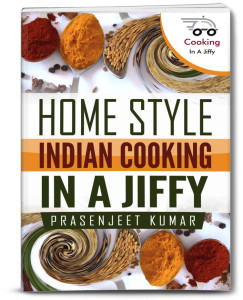Negotiating a Traditional Publishing Contract—To Sign or Not Sign Away Your World Rights
- By Prasenjeet
- July 9, 2017
- No Comments
You know, what is the biggest mistake writers can make? It’s not typos in a book or bad formatting which you can all fix with a little diligence. But it is signing a bad contract and giving away all your rights to someone else so that that person makes money and NOT you.

Contracts are everywhere. They are unavoidable. As an indie author, you may think you have never signed a contract or may never need to, but the reality is that if you are published anywhere, you would have signed many contracts.
For example, you are bound by KDP’s agreement when you published your book to Amazon. The same is true with Smashwords, Draft2digital, Kobo, iBooks, Google Play, Babelcube etc. etc. etc.
In the future, you may want to tap newer foreign markets, and for that you may have to sign a contract with a foreign publisher. Therefore, you must understand what you’re signing away. You must also determine whether the deal you’re being offered is a good deal or a bad one.
And that can only happen if you educate yourself. I’m thankful to Kristine Kathryn Rusch’s blog that really educated me about the various terms used in traditional publishing contracts and the pitfalls to avoid.
Kristine has over forty years of experience dealing with both traditional and indie publishers for publishing her books.
So it should be worth your while to, first, familiarise yourself with those different terms used in a traditional publishing contract which you can easily find on Kristine’s blog.
I am going to start a series of blog posts where I’m going to talk about my experiences in negotiating a traditional publishing contract with an Indian publishing house.
I’m not giving legal advice though. Even though I have practised as a lawyer for two years, I don’t think I’m in any way competent to give you legal advice regarding IP contracts.
Yes, it is possible to negotiate a contract with a traditional publisher. But you must be willing to walk away if the negotiations fail. Contracts form the basis of any business. And writing, whether you like it or not, is a business at its core.
So if a publisher refuses to accept your terms and conditions, you should say, “No.” Walk away from that deal and wait for a better one. Never sign a contract in desperation.
Anyway back to the main topic. As you know I’m 100% indie. So why did I need to go to a traditional publisher, you may ask?
Well, because we needed to get my mom’s memoir printed and distributed in India. Her target audience is India and 95% of the book market in India is still print. Paperbacks in India are usually priced anywhere from $1 to $6.
And so nobody is willing to spend $20 for a print book from CreateSpace, and on top of that wait for about three weeks to get that copy shipped from the United States to India.
So we contacted this small publisher in Delhi to make my mom’s book available in print in India.
This publishing house specialises in publishing manuscripts from bureaucrats and police officers that expose corruption and maladministration in the government. And since my mom is a retired government servant, her memoir fitted this “genre” perfectly.
We were very clear we wanted to retain all other rights—eBook, audio, translation and other subsidiary rights (including film and media rights). We wanted to license only those rights that were needed to get my mom’s book available in print in India at a reasonable price.
Following Kris’ advice, all of us read the entire “standard” contract word by word. And no doubt, it was lopsided, tilted quite unapologetically in the favour of the publisher. Fortunately, it didn’t have a non-compete clause, options clause or an agent’s clause (as we didn’t go through an agent).
But it was still grabbing our world rights, in all formats, and in all languages, even though the publisher had no wherewithal to publish in territories in North America or Europe. Why, he wasn’t even publishing eBooks on a regular basis for all his titles!
Here is the exact clause from the contract. I’m also highlighting the problematic words.
“The Author (s) have supplied the work for publication to the publisher and hereby grant (s) to the Publisher, as per the Publisher’s terms & conditions, the full and exclusive right on the terms specified in this agreement, to print, publish, and to sell the work and all subsequent revisions and adaptations thereof throughout the world in all languages, in hard or soft cover (including in electronic or digital form) and in text, trade, reprint, and other editions and to dispose of all subsidiary rights thereto in all languages.”
Some authors get excited (in the wrong way) reading such a clause. They think the publisher is going to publish their books throughout the world and even get the book translated in all languages.
Well, this small publisher had no presence beyond India. He also had no way of getting the book translated in to, say, Italian, Spanish or French.
He hardly knew what Kindle is. No kidding.
Yet, he had no qualms about grabbing as many rights as possible.
So going back to negotiation. First and foremost, delete anything that makes little sense. Second, negotiate via e-mail. It’s easier to think coolly and rationally when you are composing an e-mail than when you have to negotiate face-to-face.
Here is a list of recommended changes:
* As per the Publishers’ terms & conditions: In the same paragraph, we found an inconsistency. In Line 2, it said “as per the Publisher’s terms & conditions” and in Line 3 “terms specified in this agreement.” Do they mean the same thing? Or does the publisher have a separate set of terms & conditions NOT attached with the contract but hidden somewhere in his cupboard with some other skeletons! Now we could have asked the publisher but that would simply be a waste of time. The words Publishers’ terms & conditions in line 2, in our opinion, were unnecessary. So we deleted it.
* World: We changed that to India. It was later negotiated to South Asia (including Afghanistan) and a few more territories such as the UAE and Mauritius.
* All languages: We changed this to English language ONLY. In negotiations, the publisher said he wanted to translate the book in Hindi and Urdu as well. At the present moment, we have no way of getting our book translated in Hindi or Urdu, so we were fine with it. You may ask: What if the publisher never translates the book in Hindi or Urdu? That we’ll deal separately in a future blog post.
* including electronic or digital form: We deleted that. We didn’t want to license our eBook and other digital rights because we thought we could handle these better ourselves. Also the publisher was stuck at the 10% Royalty level for these rights too, when we could get 60-70% otherwise.
* Other editions: We made it to “Other Print editions” throughout the agreement. The term Other editions is too broad and by accident shouldn’t include eBook, translations or anything else. So, we considered it prudent to make these words as specific as possible.
* All subsidiary rights thereto in all languages: Subsidiary rights include everything like games, TV, film, and other media rights. So we deleted the phrase altogether.
This is how the new clause looked like:
“The Author (s) have supplied the work for publication to the publisher and hereby grant (s) to the Publisher, the full and exclusive right on the terms specified in this agreement, to print, publish, and to sell the work and all subsequent revisions and adaptations thereof only for South Asia, Afghanistan, Mauritius and UAE in English, Hindi, Urdu languages, in hard or soft cover and in text, trade, reprint, and other Print editions.”
In the next blog post, we’ll deal with film and media rights.
Do let me know if you agree with our strategy.
And please do feel free to leave your comments/suggestions below.






























Leave a Reply